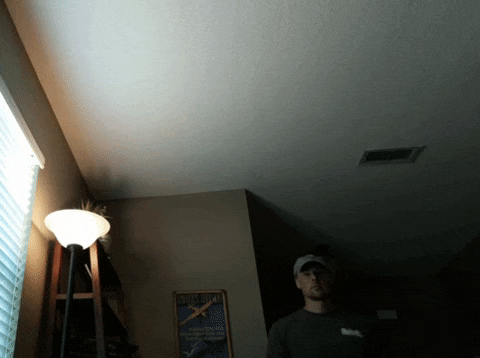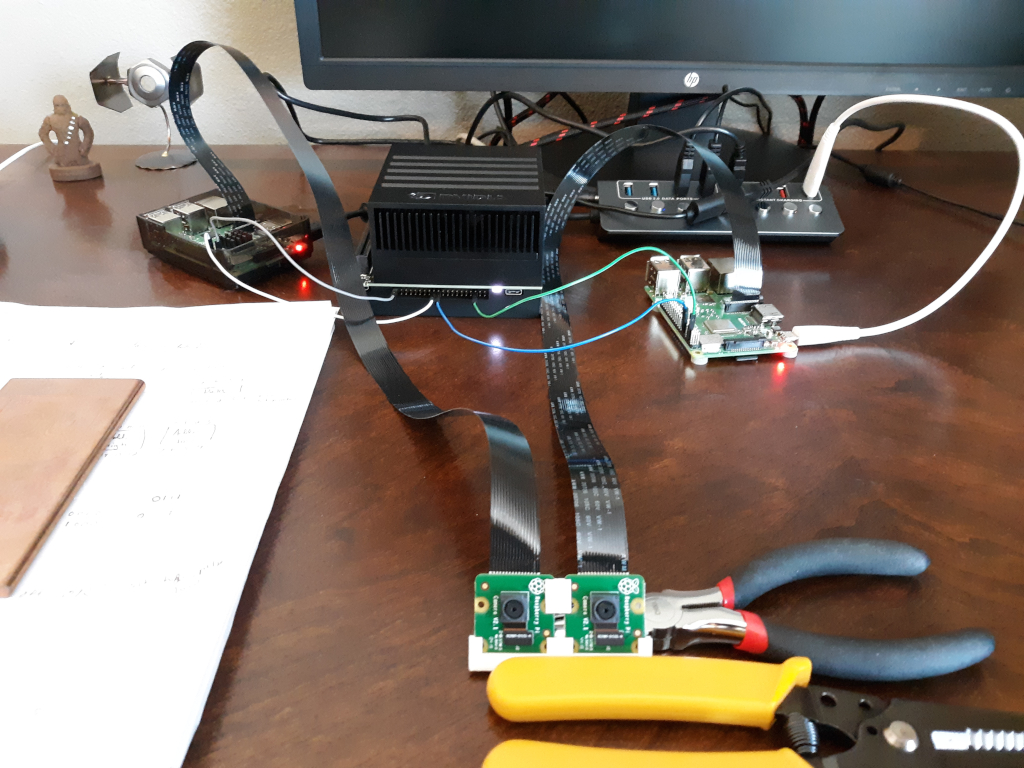Amid the continued spread of coronavirus, extra care is being taken by just about everyone to wash hands and wipe down surfaces, from countertops to groceries.
To spotlight potentially contaminated surfaces, hobbyist Nick Bild has come up with Deep Clean, a stereo camera system that flags objects that have been touched in a room.
The device can be used by cleaning crews at hospitals and assisted living facilities or anyone who’d like to know what areas need special attention when trying to prevent disease transmission.

Deep Clean uses an NVIDIA Jetson AGX Xavier developer kit as the main processing unit to map out a room, detecting where different objects lie within it. Jetson helps pinpoint the exact location (x,y-coordinates) and depth (z-coordinate) of each object.
When an object overlaps with a person’s hand, which is identified by an open-source body keypoint detection system called OpenPose, those coordinates are stored in the system’s memory. To maintain users’ privacy, only the coordinates are stored, not the images.
Then, the coordinates are used to automatically annotate an image of the unoccupied room, displaying what has been touched and thus potentially contaminated.
Nick the Bild-er: Equipped with the Right Tools
When news broke in early March that COVID-19 was spreading in the U.S., Bild knew he had to take action.
“I’m not a medical doctor. I’m not a biologist. So, I thought, what can I do as a software developer slash hardware hacker to help?” said Bild.
Juggling a software engineering job by day, as well as two kids at home in Orlando, Florida, Bild faced the challenges of finding the time and resources to get this machine built. He knew getting his hands on a 3D camera would be expensive, which is why he turned to Jetson, an edge AI platform he found to be simultaneously affordable and powerful.

“It’s really a good general-purpose tool that hits the sweet spot of low price and good performance,” said Bild. “You can do a lot of different types of tasks — classify images, sounds, pretty much whatever kind of AI inference you need to do.”
Within a week and a half, Bild had made a 3D camera of his own, which he further developed into the prototype for Deep Clean.
Looking ahead, Bild hopes to improve the device to detect sources of potential contamination beyond human touch, such as cough or sneeze droplets.
Technology to Help the Community
Deep Clean isn’t Bild’s first instance of helping the community through his technological pursuits. He’s developed seven different projects since he began using NVIDIA products when the first Jetson Nano was released in March 2019.
One of these projects, a pair of AI-enabled glasses, won NVIDIA’s Jetson Community Project of the Month Award for allowing people to switch devices such as a lamp or stereo on and off simply by looking at them and waving. The shAIdes are especially helpful for those with limited mobility.
Bild calls himself a “prototyper,” as he creates a variety of smart, useful devices like Deep Clean in hopes that someday one will be made available for wide commercial use.
A fast learner who’s committed to making a difference, Bild is always exploring how to make a device better and looking for what to embark upon as his next project.
Anyone can get started on a Jetson project. Learn how on the Jetson developers page.
The post You Can’t Touch This: Deep Clean System Flags Potentially Contaminated Surfaces appeared first on The Official NVIDIA Blog.
